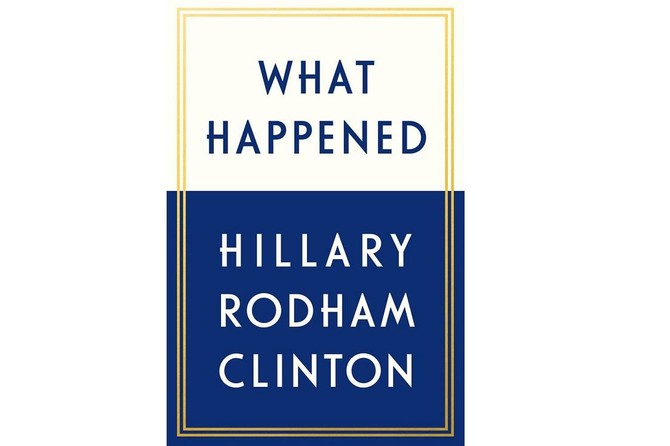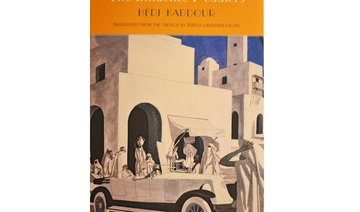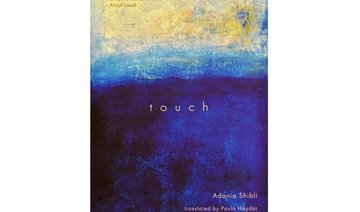She was the presumptive favorite in the 2016 US presidential election. She was also extremely qualified when compared to her inexperienced opponent. Yet, against all odds, she managed to lose to a divisive candidate who won in one of the most astounding victories in American political history. On the night of Nov. 8, 2016, when the results started pouring in, surprise gave way to astonishment as everyone asked the same question: What Happened to Hillary Rodham Clinton?
Everyone seems to have a theory as to why she failed to become the first woman president of the US. But what was going through her mind during that incredible election night? For the first time, Clinton looks back on the election in her book “What Happened.” She tells her side of the story with humor and sincerity and this poignant memoir will interest both her supporters and her detractors.
Clinton never imagined she write a book about the shocking loss, however, it is not a comprehensive account of the 2016 race as “that’s not for me to write, I have too little distance and too great a stake in it,” she writes.
She has chosen to focus on moments from the campaign, on people who inspired her and on the major challenges she has tackled during her nearly four decades in public service.
Despite the broad focus, it is natural that readers will wonder how she felt on the night of the election. Clinton, accompanied by her family and senior staff members, were staying at The Peninsula hotel, just a block away from Trump Tower. “The waiting was excruciating,” she admits. So, she decided to take a nap hoping that when she woke up, things would look better. When she got up, the atmosphere in her suite on the top floor was even gloomier and as the hours went by, the numbers were not getting any better.
“How had this happened? All our models, as well as all the public polls and predictions, gave us an excellent chance at victory. Now it was slipping away. I felt shell-shocked. I hadn’t prepared mentally for this at all. There had been no doomsday scenarios playing out in my head in the final days, no imagining what I might say if I lost. I just didn’t think about it. But now it was real as could be and I was struggling to get my head around it. It was like all the air in the room had been sucked and I could barely breathe.”
She gave her concession speech in a grey-and-purple suit that she intended to wear on her first trip to Washington as president elect. This is one of the many details that shows how Clinton was absolutely not prepared to lose. All her plans revolved around her victory.
Clinton spent the first day after her defeat following these dramatic events and doing very little else. She could not handle people’s kindness, sorrow and bewilderment and their explanations for how she had failed. “Bill and I kept the rest of the world out. I was grateful for the one billionth time that I had a husband who was good company, not just in happy times, but sad ones as well.” The next day, she finally reconnected with people, answering an avalanche of emails and returning phone calls.
Afterwards, she writes, she spent long hours walking with her husband and talking again and again about the unforeseeable loss. She also learned how to be grateful for the hard things. “My task was to be grateful for the humbling experience of losing the presidential election. Humility can be such a painful virtue.”
President Barack Obama played a key role in Clinton’s decision to run for president. He was well aware that his legacy depended, to a large extent, on a Democratic victory in 2016. “He made it clear that he believed that I was our party’s best chance to hold the White House and keep our progress going and he wanted me to move quickly to prepare to run.”
Clinton announced her candidacy in June 2015 and, amidst all the positive comments she received after her speech, she hardly paid attention to American journalist E.J. Dionne’s sharp remark: “Hillary Clinton is making a bet and issuing a challenge. The bet is that voters will pay more attention to what she can do for them than to what her opponents will say about her.”
We all now know that Clinton lost the white working-class vote, Trump garnered their attention with populist rhetoric and an excellent slogan — “Make America Great Again.”
Although Clinton dreams of a future in which women in the public eye will not be judged for how they look but for what they do, when she was campaigning, she always made time for her make-up and to have her hair done. “The few times I’ve gone out in public without makeup, it’s made the news,” she wrote in the book. Clinton even calculated how many hours it took her to have her hair and make-up done during the campaign. It came to 600 hours, which is equivalent to 25 days.
Clinton shares personal details in the book, for example, she tells readers that whenever she was traveling, she never went to sleep without calling her husband. These conversations kept her “grounded and at peace,” she writes, adding: “He’s funny, friendly, unflappable in the face of mishaps and inconveniences and easily delighted by the world…He is fabulous company.”
This book shows Clinton as we have never seen her before — vulnerable, forgiving and humble.
It leaves us all wondering, what will happen next?
Book Review: Hillary Clinton in her own words
Book Review: Hillary Clinton in her own words

What We Are Reading Today: The Ghana Reader

Editors: Kwasi Konadu, Clifford C. Campbell
“The Ghana Reader” provides historical, political, and cultural perspectives on this iconic African nation.
Readers will encounter views of farmers, traders, the clergy, intellectuals, politicians, musicians, and foreign travelers about the country.
With sources including historical documents, poems, treaties, articles, and fiction, the book conveys the multiple and intersecting histories of the country’s development as a nation and its key contribution to the formation of the African diaspora, according to a review on goodreads.com.
What We Are Reading Today: ‘The Dream Hotel’

- “The Dream Hotel” is more than a compelling narrative; it is a reflection on the complexities of freedom and the influence of technology on our lives
Author: Laila Lalami
Reading Moroccan-American novelist Laila Lalami’s “The Dream Hotel” was an eye-opening experience that left me simultaneously captivated and unsettled.
The novel weaves a story about one woman’s fight for freedom in a near-future society where even dreams are under surveillance.
The narrative centers on Sara, who, upon returning to Los Angeles International Airport, is pulled aside by agents from the Risk Assessment Administration.
The chilling premise — that an algorithm has determined she is at risk of harming her husband — immediately drew me in. Lalami’s portrayal of Sara’s descent into a retention center, where she is held alongside other women labeled as “dreamers,” is both fascinating and disturbing.
What struck me most was how Lalami explores the seductive nature of technology. I found myself reflecting on our current relationship with data and surveillance.
The idea that our innermost thoughts could be monitored and judged felt unsettlingly familiar. As Sara navigates the oppressive rules of the facility, I felt a growing frustration at the injustice of her situation, which echoes broader societal concerns about privacy and autonomy.
Lalami’s writing is lyrical yet accessible, drawing readers into the emotional depth of each character. The interactions among the women in the retention center are especially poignant, showing how strength can emerge from solidarity.
As the story unfolds, I was reminded of the resilience of the human spirit, even under dehumanizing conditions. The arrival of a new resident adds a twist, pushing Sara toward a confrontation with the forces trying to control her. This development kept me invested in seeing how she would reclaim her agency.
“The Dream Hotel” is more than a compelling narrative; it is a reflection on the complexities of freedom and the influence of technology on our lives. It left me considering how much of ourselves we must guard to remain truly free.
In conclusion, Lalami has crafted a thoughtful and resonant novel that lingers after the final page. It is well worth reading for those interested in the intersections of identity, technology and human experience.
What We Are Reading Today: The River of Lost Footsteps by Thant Myint-U

Western governments and a growing activist community have been frustrated in their attempts to bring about a freer and more democratic Myanmar, only to see an apparent slide toward even harsher dictatorship.
In “The River of Lost Footsteps,” Thant Myint-U tells the story of modern Myanmar, in part through a telling of his own family’s history, in an interwoven narrative that is by turns lyrical, dramatic, and appalling.
The book is a distinctive contribution that makes Myanmar accessible and enthralling, according to a review on goodreads.com.
What We Are Reading Today: Return of the Junta by Oliver Slow

In 2021, Myanmar’s military grabbed power in a coup d’etat, ending a decade of reforms that were supposed to break the shackles of military rule in Myanmar.
Protests across the country were met with a brutal crackdown that shocked the world, but were a familiar response from an institution that has ruled the country with violence and terror for decades.
In this book, Oliver Slow explores the measures the military has used to keep hold of power, according to a review on goodreads.com.
What We Are Reading Today: Elusive Cures

- “Elusive Cures” sheds light on one of the most daunting challenges ever confronted by science while offering hope for revolutionary new treatments and cures for the brain
Author: Nicole C. Rust
Brain research has been accelerating rapidly in recent decades, but the translation of our many discoveries into treatments and cures for brain disorders has not happened as many expected. We do not have cures for the vast majority of brain illnesses, from Alzheimer’s to depression, and many medications we do have to treat the brain are derived from drugs produced in the 1950s—before we knew much about the brain at all. Tackling brain disorders is clearly one of the biggest challenges facing humanity today. What will it take to overcome it? Nicole Rust takes readers along on her personal journey to answer this question.
Drawing on her decades of experience on the front lines of neuroscience research, Rust reflects on how far we have come in our quest to unlock the secrets of the brain and what remains to be discovered.
“Elusive Cures” sheds light on one of the most daunting challenges ever confronted by science while offering hope for revolutionary new treatments and cures for the brain.


















